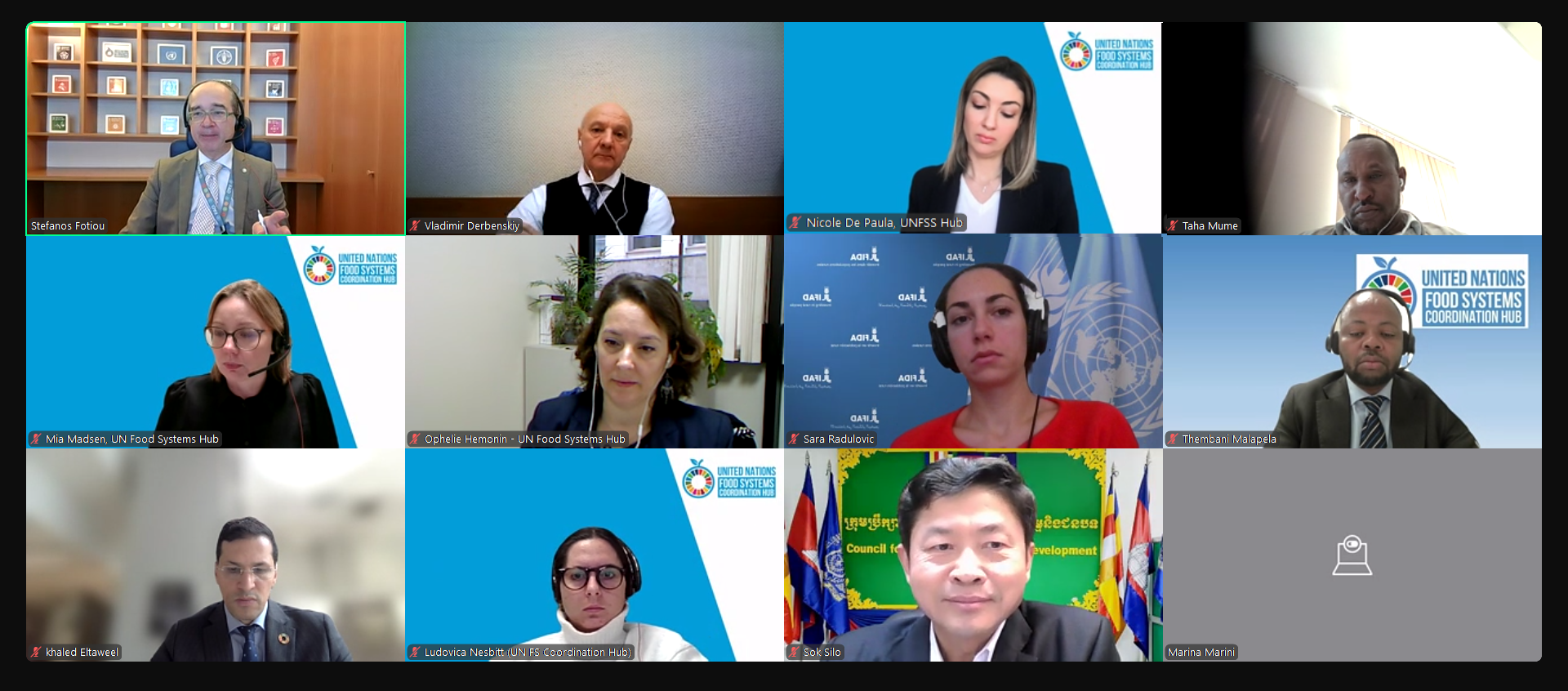SEED FUNDING JOINT PROGRAMMES
Jordan
Transforming Jordan's Agri-food System towards greater sustainability and resilience



PROJECT TITLE | Transforming Jordan's Agri-food System towards greater sustainability and resilience |
| Context | Since 2021, Jordan has placed food security and system at the forefront of its developmental goals with the adoption of the National Food Security Strategy (NFSS) for 2021–2030. The NFSS envisions access to safe, affordable, and nutritious food for all by 2030. The 2022-2024 National Food Security Action Plan for the implementation of the NFSS prioritizes food availability, improved access to and better utilization of food, and strengthening governance mechanisms. |
| PUNOs | FAO, UNIDO |
| Contribution to SDGs | SDG 2 Zero Hunger, SDG 8 Decent Work and Economic Growth |
| Contribution to other SDG transitions | Decent Jobs and Universal Social Protection |
| Duration | September 2024 – August 2025 |
| Expected financial leverage | USD 30,000 – co-financing from FAO, UNDO, MoA |
| Alignment with SG Call to Action | Policy integration; Food systems governance; Research, data, technology and innovation; Inclusive and participatory design; Private sector engagement; Financing |
| Outcomes | The JP strengthens the government’s capacity to identify and implement strategic programs that deliver positive outcomes across multiple dimensions of food systems, including production, post-harvest, processing and distribution. The JP emphasizes the inclusion of refugees, women and youth in food systems. |
| Partners |
|
| Outputs |
|
Global Touchpoint with National Convenors

The UN Food Systems Coordination Hub convened a Global Touchpoint with National Convenors on 11 December 2024, providing a platform to review the work accomplished in 2024, share progress on Hub flagship initiatives, and set the stage for the 2nd UN Food Systems Summit Stocktaking Moment (UNFSS+4) in 2025.
Flagship initiatives in focus
The Hub provided updates on progress across its flagship initiatives:
- The Convergence Initiative: Bridging food systems transformation with climate action, this initiative addresses shared challenges like food insecurity and climate shocks. Following COP29, it will scale to 20 countries by COP30 to broaden its impact.
- Financial Flows to Food Systems (3FS): Co-developed by IFAD and the World Bank in collaboration with the Hub, the 3FS tool tracks and aligns food systems financing from public, private, and international sources. Pilots in Niger, Peru, and Kenya will inform scaling to 11 additional countries, enhancing financing insights.
- UN Joint SDG Fund - Food Systems Window: Supporting national pathways, this fund offers targeted seed and high-impact funding to advance innovative solutions. Upcoming rounds will focus on scaling proven projects, with an emphasis on climate resilience and biodiversity.
- Youth Leadership Programme (YLP): Engaging 80 young leaders from 65 countries, the programme builds a diverse cohort equipped to drive systemic change. It also works to strengthen collaboration through the Science-Policy-Society Interface (SPSI), where youth are involved in co-creating national action plans in six pilot countries.
- Operationalizing national food systems pathways: The Hub continues to support governments to integrate food systems approaches into national and subnational policies. This includes building inclusive governance structures, investment plans, and cross-sectoral partnerships, alongside upcoming tools like a tracking dashboard to monitor progress and a virtual library of practical resources for implementation.
Insights and priorities from National Convenors
Interactive discussions with National Convenors emphasized the importance of aligning efforts with global priorities while addressing national challenges. Convenors highlighted the need for regional platforms in 2025 to showcase progress, exchange solutions, and foster collaboration. Expectations for UNFSS+4 include a focus on tangible impacts, actionable outcomes, and critical themes such as financing, governance, and inclusive partnerships. Convenors also underscored the value of engaging youth, civil society, and private sector actors to build resilient, sustainable food systems.
Looking ahead to 2025
The Hub reaffirmed its commitment to supporting countries through regional forums, enhanced collaboration, and knowledge-sharing platforms. Preparations for UNFSS+4 are already underway, with a focus on showcasing national progress, fostering innovation, and maintaining global momentum.
